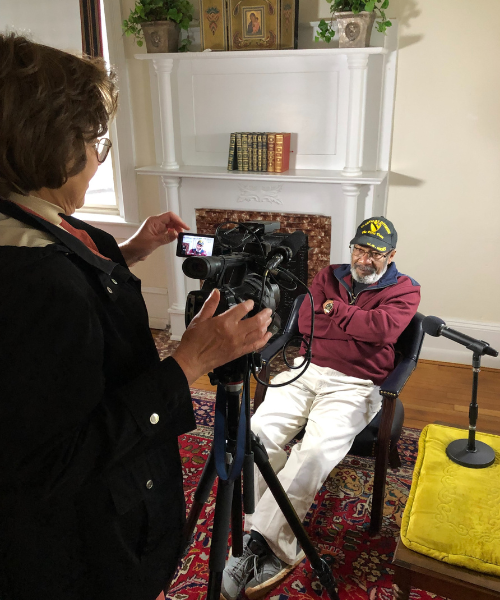
Save Sewanee Black (Oral) History
A project funded in part through the generosity of the National Endowment for the Humanities and of the friends of the Roberson Project on Slavery, Race, and Reconciliation
Launched May 2019
This oral history archive dates back to the spring and summer of 2019, when the Roberson Project partnered with local Black residents and their descendants to recover, preserve, and tell the history of Sewanee’s historically Black St. Mark’s neighborhood. A main feature of the archiving events, or history harvests, we held at the St. Mark’s Community Center was the oral history initiative. Earlier in the spring we had hosted Bernetiae Reed, an oral history specialist who has worked independently and with the library of the University of North Carolina in Chapel Hill. Ms. Reed collected the first oral histories for us, video-recording several people who had grown up in St. Mark’s. Later, at the history harvests, local residents Ann and Doug Cameron lent us their air-conditioned family RV, which provided a quiet environment for our volunteer oral historians to record interviews.
However, after these promising events and “harvests,” the COVID epidemic interrupted our progress. The close-up process of recording interviews, especially with older members of the community, was not suited to pandemic conditions. The Roberson Project staff, paired down in the budget crunch of 2020 and 2021, was unable to keep up with the earlier processing. Thanks to new resources available to us, the hard work of the Roberson Project staff, and the patience of our community partners and supporters, we are happy to make these interviews publicly vailable for the first time.
This is a living and growing archive. The collection of oral histories will remain a core focus of the Roberson Project and the Save Sewanee Black History project. The Roberson Project is grateful to the many volunteers who went through the oral history training and collected the interviews. We especially remember the good work of the late Matt Reynolds, then the associate director of the William R. Laurie University Archives and Special Collections. Mr. Reynolds put us all through highly effective training in the use of Zoom recording devices, not to mention his own work scanning and cataloguing artifacts. We also recognize the generosity of the people we interviewed, who donated their memories and stories to this archive. They are helping to “Save Sewanee Black History” from erasure as the town and university continue to change.
We invite you to listen to these interviews. You also may follow along with a written transcript. However, we alert you that the transcripts are “machine generated” and unedited. They certainly include errors in spelling and transcription, and we apologize for those. We make the transcriptions available for your convenience, but the audio recordings are the definitive record.
These recordings are publicly accessible, but they may not be copied, quoted, or used in any form without the express written permission of the Roberson Project and of the interviewed person, who retains all rights to these materials.